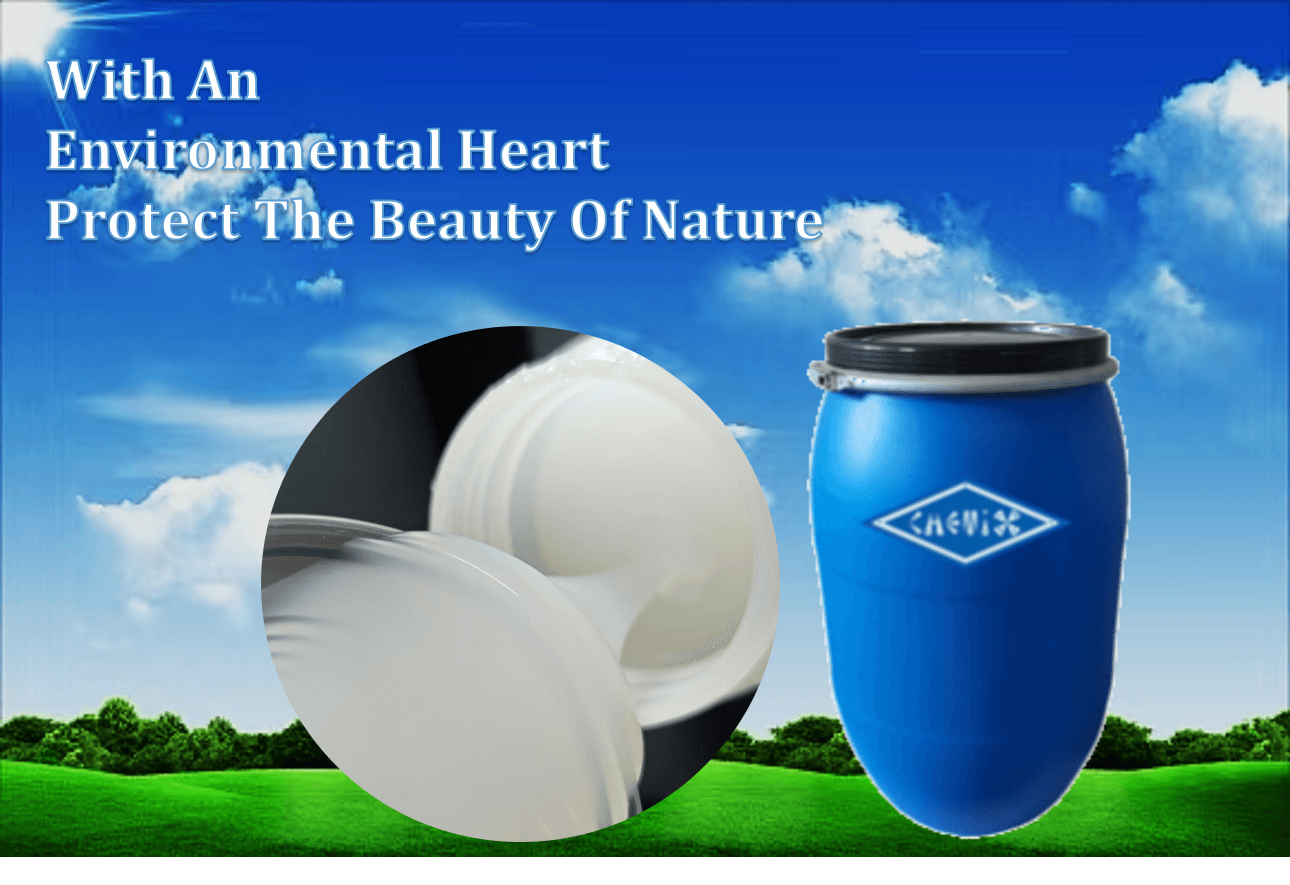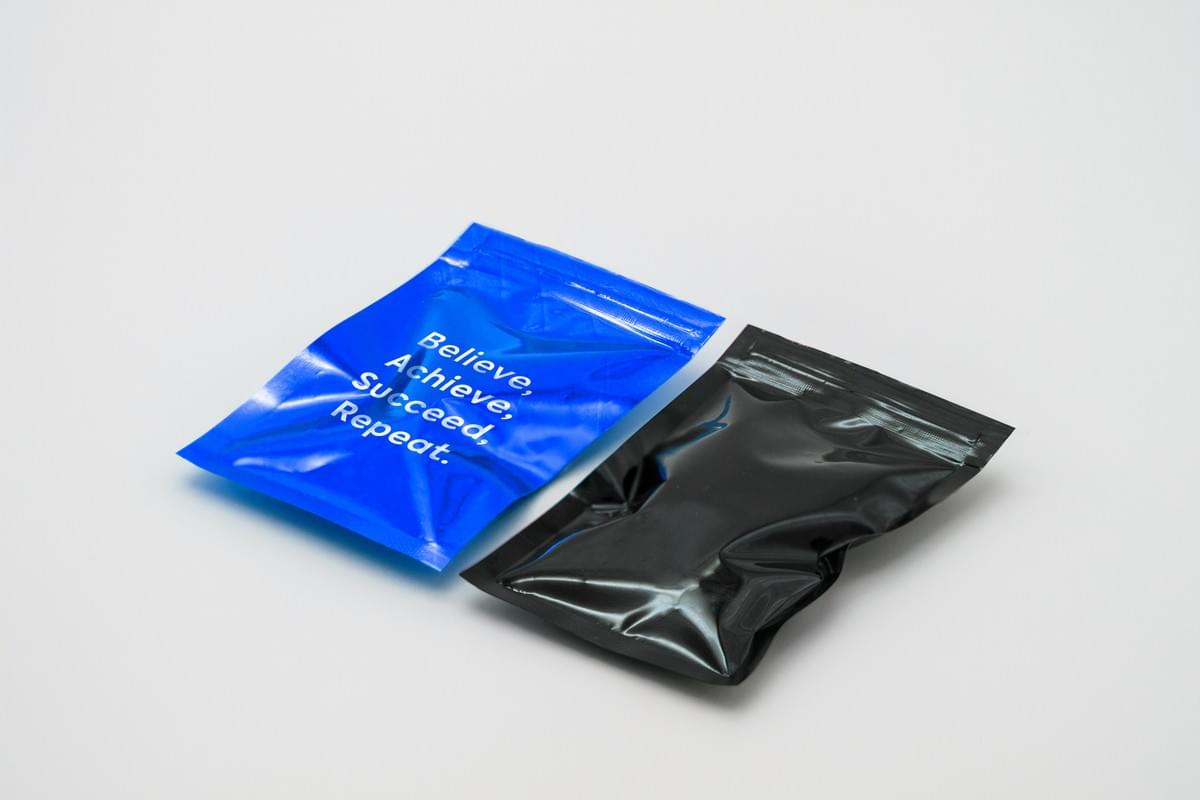Introduction

In a world increasingly concerned with environmental impact, sustainable packaging has emerged as a critical focus for businesses and consumers alike. The need for eco-friendly solutions is not just a trend; it's a necessity that addresses the growing issue of waste and pollution. Sustainable coatings play a pivotal role in this movement, offering innovative ways to enhance packaging while reducing the carbon footprint.
Why Sustainable Packaging Matters
Sustainable packaging is essential because it minimizes environmental harm while meeting consumer demands for convenience and safety. Traditional packaging materials often contribute to landfill overflow and pollution, making the shift to sustainable alternatives imperative. By adopting sustainable coatings, companies can significantly reduce their ecological impact and appeal to the environmentally conscious consumer base.
The Role of Sustainable Coatings
Sustainable coatings are at the forefront of creating eco-friendly packaging solutions that do not compromise on performance or aesthetics. These coatings can include Bio-Based Coatings Additives that enhance durability while being derived from renewable resources, ensuring both functionality and sustainability. Moreover, with advancements in adhesive coating methods, manufacturers can now produce water-resistant coating options that protect products without harming the planet.
Innovations in Coating Technologies
The landscape of coating technologies is rapidly evolving, driven by innovation aimed at sustainability. From heat-seal adhesive coatings designed to improve product integrity to new formulations developed by leading adhesive coating companies, these advancements are revolutionizing how we think about packaging materials. As research continues into more efficient and eco-friendly options, the future looks bright for sustainable coatings in various applications across industries.
Understanding Sustainable Coatings

Sustainable coatings are revolutionizing the packaging industry by providing eco-friendly alternatives to traditional materials. These coatings are designed to minimize environmental impact while maintaining functionality and performance. In a world increasingly focused on sustainability, understanding these coatings is crucial for businesses looking to align with consumer values and regulatory standards.
Definition and Importance
At its core, a sustainable coating is a finish that enhances the performance of packaging materials while being environmentally friendly. This means using materials that are less harmful to the planet, such as bio-based coatings additives derived from renewable resources. The importance of sustainable coatings lies not only in their ability to reduce waste but also in their role in promoting circular economies where resources are reused and recycled.
The significance of sustainable coatings extends beyond just environmental benefits; they also cater to market demand for greener products. As consumers become more conscious of their choices, businesses must adapt by incorporating sustainable practices into their operations. Thus, understanding what constitutes a sustainable coating is essential for staying relevant and competitive in today’s marketplace.
Types of Sustainable Coatings
There are several types of sustainable coatings available today, each with unique properties suited for different applications. One popular category includes water-resistant coatings that provide protection against moisture while being safe for the environment. Additionally, heat-seal adhesive coatings offer excellent sealing properties without compromising sustainability, making them ideal for food packaging solutions.
Another emerging option includes bio-based coating additives that enhance performance while reducing reliance on petroleum-based substances. These innovations showcase how adhesive coating companies are pushing boundaries to create more environmentally friendly products without sacrificing quality or effectiveness. By exploring various types of sustainable coatings, businesses can choose solutions that align with both their operational needs and sustainability goals.
Benefits of Sustainable Coatings
The benefits of adopting sustainable coatings are numerous and impactful across various sectors. First and foremost, these coatings help reduce environmental footprints by minimizing waste generation and resource depletion during production processes. Moreover, many adhesive coating methods used in creating these products allow for energy savings during application compared to traditional methods.
Additionally, utilizing sustainable coatings can enhance brand reputation among consumers who prioritize eco-friendliness when making purchasing decisions. Companies that invest in green technologies often see increased customer loyalty as well as potential cost savings through reduced material usage over time. In an era where sustainability is paramount, embracing these innovative solutions positions businesses favorably within competitive markets.
Key Materials in Sustainable Coatings

In the world of sustainable coatings, the materials used are just as important as the technologies behind them. The focus on eco-friendly options has led to a surge in innovative materials that not only meet performance standards but also align with environmental goals. This section delves into three key categories: plant-based ingredients, Chemix's water-based resin solution, and recycled and biodegradable components.
Plant-Based Ingredients
Plant-based ingredients are at the forefront of sustainable coatings, offering a natural alternative to traditional synthetic materials. These bio-based coatings additives can significantly reduce reliance on petroleum-derived products while providing excellent performance characteristics such as flexibility and adhesion. Moreover, using renewable resources contributes to a lower carbon footprint, making these coatings an attractive option for environmentally conscious businesses.
Incorporating plant-derived substances into adhesive coating methods enhances not only sustainability but also safety for consumers and workers alike. For instance, some plant oils can provide natural water resistant coating properties without compromising biodegradability or recyclability. As more adhesive coating companies explore these options, we can expect a broader range of products that meet both ecological and functional requirements.
Chemix's Water-Based Resin Solution
Chemix’s water-based resin solution represents a significant leap forward in sustainable coating technology. Unlike solvent-based alternatives that release harmful VOCs (volatile organic compounds), this innovative product utilizes water as its primary solvent, resulting in lower emissions and improved indoor air quality. This eco-friendly approach makes it an ideal choice for various applications, from food packaging solutions to consumer goods.
The versatility of Chemix's solution allows it to be tailored for specific needs—whether it's creating heat-seal adhesive coatings or enhancing durability against environmental factors. By prioritizing sustainability without sacrificing performance, Chemix is setting a benchmark for other adhesive coating companies to follow suit in their product development efforts. As businesses increasingly seek out greener options, this type of water-based resin will likely become more popular across industries.
Recycled and Biodegradable Components
Recycled and biodegradable components play a crucial role in the development of sustainable coatings by closing the loop on material consumption. Utilizing recycled materials reduces waste while conserving resources required for new production; this is especially important given today's growing environmental concerns. Biodegradable components further enhance sustainability by ensuring that once these products reach the end of their life cycle, they can safely decompose without leaving harmful residues behind.
Many modern adhesive coating methods now incorporate these elements to create high-performance solutions that align with eco-friendly values. The demand for such products is rising among consumers who are increasingly aware of their purchasing impact on the environment—a trend that adhesive coating companies are keen to capitalize on by innovating their offerings accordingly. With ongoing advancements in recycling technologies and biodegradable formulations, we can expect even greater integration of these components into future sustainable coatings.
Applications of Sustainable Coatings

Sustainable coatings are transforming various industries by providing eco-friendly solutions that meet both performance and environmental standards. From food packaging to consumer goods, these innovative coatings are designed to enhance product functionality while minimizing ecological impact. Let’s dive into the specific applications where sustainable coatings shine.
Food Packaging Solutions
In the realm of food packaging, sustainable coatings play a crucial role in ensuring products remain fresh without compromising safety or quality. Utilizing water-resistant coatings and heat-seal adhesive coatings, manufacturers can create barriers that protect food from moisture and contaminants while being environmentally friendly. Companies specializing in adhesive coating methods are increasingly turning to bio-based coatings additives that not only enhance performance but also reduce reliance on petroleum-based materials.
The shift towards sustainable coating solutions in food packaging is driven by consumer demand for greener options and regulatory pressures for reduced waste. By adopting these innovative technologies, brands can improve their sustainability profiles while maintaining compliance with health and safety standards. With the rise of eco-conscious consumers, businesses that invest in sustainable food packaging solutions stand to gain a competitive edge.
Industrial Uses
Beyond the culinary world, sustainable coatings have made significant strides in industrial applications as well. These coatings provide essential protection against corrosion, wear, and environmental damage while being formulated from renewable resources. Adhesive coating companies are embracing sustainable practices by developing robust water-resistant coatings suitable for heavy machinery and equipment used in various sectors.
The use of bio-based coatings additives has proven beneficial not only for the environment but also for operational efficiency within industrial settings. Industries ranging from automotive to construction are recognizing the advantages of utilizing these eco-friendly alternatives over traditional solvent-based options. As regulations tighten around emissions and waste management, adopting sustainable coating technologies becomes imperative for companies looking to future-proof their operations.
Consumer Goods and Retail
Sustainable coatings have found their way into consumer goods and retail products as well, offering brands an opportunity to appeal directly to environmentally conscious shoppers. From cosmetics packaging to household items, implementing adhesive coating methods with bio-based components enhances product appeal while aligning with sustainability goals. Retailers who prioritize eco-friendly packaging are likely to attract a loyal customer base eager to support responsible practices.
Moreover, sustainable coating solutions can elevate brand image by showcasing commitment toward reducing plastic waste and carbon footprints through innovative design choices like recyclable or biodegradable materials. As awareness around sustainability grows among consumers, businesses must adapt their strategies accordingly or risk falling behind competitors who embrace this movement wholeheartedly. The future of retail lies in integrating sustainability into every aspect of product development—including the use of effective sustainable coatings.
The Future of Sustainable Coatings

The future of sustainable coatings is not just bright; it's bursting with innovation and potential. With a keen focus on eco-friendliness, the industry is witnessing a surge in new technologies designed to enhance the performance and sustainability of coatings. As businesses increasingly recognize the importance of sustainable practices, the demand for advanced solutions like water-resistant coatings and bio-based coatings additives is on the rise.
Emerging Technologies
Emerging technologies are revolutionizing sustainable coatings by introducing novel formulations that enhance their functionality without compromising environmental integrity. For instance, bio-based coatings additives are gaining traction as they offer improved performance characteristics while being derived from renewable resources. Additionally, advancements in heat-seal adhesive coatings are providing manufacturers with options that ensure strong bonding while maintaining sustainability standards.
These innovations not only cater to the growing need for environmentally friendly products but also address specific application requirements across various industries. As adhesive coating companies invest in research and development, we can expect to see more effective adhesive coating methods that prioritize both efficiency and ecological responsibility. The result? A new era where sustainable coating solutions become the norm rather than the exception.
Regulatory Trends and Compliance
Regulatory trends are increasingly shaping the landscape of sustainable coatings, pushing companies to adopt greener practices or risk falling behind. Governments worldwide are implementing stricter regulations regarding chemical usage and waste management, driving businesses toward compliance with eco-friendly standards. This shift has prompted many adhesive coating companies to explore innovative formulations that align with these regulations while still delivering high-performance results.
Compliance does not merely serve as a checklist; it has become an essential component of brand reputation and consumer trust in today’s market. Companies utilizing water-resistant coatings or other sustainable options can position themselves favorably against competitors who may lag in adopting these necessary changes. With regulatory frameworks evolving rapidly, staying ahead means investing in sustainable solutions now rather than later.
Market Demand and Consumer Awareness
Consumer awareness around sustainability is at an all-time high, leading to increased market demand for products featuring sustainable coating technologies. Today’s consumers actively seek out brands that align with their values—those committed to reducing environmental impact through innovative solutions like bio-based coatings additives and eco-friendly adhesive methods. This shift presents an opportunity for businesses willing to embrace change by adopting sustainable practices within their product lines.
Moreover, as more consumers educate themselves about materials used in packaging and goods they purchase, they influence market trends significantly by favoring companies that prioritize sustainability over traditional methods. Businesses responding proactively by incorporating water-resistant coatings or heat-seal adhesive coatings into their offerings can tap into this growing segment while enhancing brand loyalty among conscious consumers—after all, who doesn’t want a little eco-credibility?
Implementing Sustainable Coatings in Business

Transitioning to sustainable coatings is not just a trend; it's a necessary evolution for businesses looking to thrive in an eco-conscious world. The first step involves conducting a thorough assessment of current packaging materials and identifying areas where sustainable coating options can replace traditional methods. This includes researching adhesive coating companies that specialize in sustainable solutions, such as bio-based coatings additives and water-resistant coatings, which can enhance both performance and environmental impact.
Steps for Transitioning
The transition begins with education and training for all stakeholders involved in the packaging process. Companies should invest time in understanding the various adhesive coating methods available, focusing on those that employ heat-seal adhesive coatings or other innovative technologies that promote sustainability. Collaboration with suppliers who provide bio-based coatings additives will also be crucial; this ensures that every component of your packaging aligns with your sustainability goals.
Next, it's essential to pilot test these new sustainable coatings on smaller product lines before rolling them out company-wide. This approach allows businesses to evaluate the effectiveness of the new materials without committing extensive resources upfront. Gathering feedback from customers and stakeholders during this testing phase can provide valuable insights into how well these sustainable solutions meet market expectations.
Finally, once you’ve validated your chosen sustainable coating options, it’s time to implement changes across your entire production line. Communicate openly with employees about the benefits of using sustainable coatings, fostering a culture of environmental responsibility within the organization. Remember that transitioning isn’t just about changing materials; it’s about creating a mindset shift towards more sustainable practices company-wide.
Cost Considerations
While many businesses may initially perceive switching to sustainable coatings as a costly endeavor, there are several factors to consider that could mitigate these expenses over time. First off, investing in high-quality water-resistant coatings or heat-seal adhesive coatings can lead to longer-lasting products that reduce waste and lower replacement costs in the long run. Additionally, many adhesive coating companies offer incentives or discounts for bulk purchases of eco-friendly materials.
Moreover, consumers today are increasingly willing to pay a premium for products packaged sustainably; thus, adopting these innovations can enhance brand loyalty and open up new revenue streams. By integrating bio-based coatings additives into your offerings, you may find yourself appealing to an environmentally aware demographic eager for responsible choices—translating into higher sales figures over time.
Lastly, keep an eye on potential government grants or subsidies aimed at promoting green initiatives within industries like packaging and manufacturing. These financial aids could alleviate some initial costs associated with transitioning while simultaneously reinforcing your commitment to sustainability—a win-win scenario!
Case Studies of Successful Implementation
Many companies have successfully transitioned to using sustainable coatings while reaping significant benefits—one standout example is Coca-Cola's use of plant-based PET bottles enhanced by advanced water-resistant coatings developed through innovative adhesive coating methods. By incorporating bio-based components into their packaging strategy, they not only reduced their carbon footprint but also garnered positive media attention for their commitment to sustainability.
Another impressive case is Unilever's implementation of heat-seal adhesive coatings across its product lines which resulted in improved shelf life and reduced spoilage rates—proving both cost-effective and environmentally friendly at once! Their focus on sourcing biodegradable components has set a benchmark within the consumer goods industry that others are now striving to emulate.
Lastly, local startups like EcoPack have made waves by utilizing recycled materials alongside cutting-edge bio-based coatings additives designed specifically for food packaging applications—demonstrating how even small businesses can make impactful strides toward sustainability without breaking the bank! Such case studies serve as inspiration for enterprises ready to embrace change while highlighting practical pathways toward implementing effective sustainable coating solutions.
Conclusion
As we wrap up our exploration of sustainable coatings, it’s clear that these innovations are more than just a trend; they represent a significant shift towards environmental responsibility. Sustainable coatings, including bio-based coatings additives and heat-seal adhesive coatings, are paving the way for a cleaner future by reducing waste and reliance on harmful chemicals. The impact of these advancements goes beyond the packaging industry, influencing various sectors to adopt eco-friendly practices.
The Impact of Sustainable Coatings on the Environment
Sustainable coatings play a pivotal role in minimizing environmental harm by utilizing renewable resources and reducing carbon footprints. With bio-based coatings additives and water-resistant coating technologies, manufacturers can create products that not only perform well but also contribute to a healthier planet. By choosing sustainable options, industries can significantly decrease pollution levels and waste generation, promoting ecological balance.
How Businesses Can Benefit from Sustainability
Embracing sustainable coatings offers businesses numerous benefits that extend beyond compliance with regulations. Companies that integrate adhesive coating methods focusing on sustainability often experience increased consumer loyalty as customers become more environmentally conscious. Moreover, adopting sustainable practices can lead to cost savings in the long run through reduced material waste and enhanced efficiency in production processes.
Future Trends to Watch in Coating Technologies
The future of sustainable coatings is bright, with emerging technologies poised to revolutionize the industry further. We can expect advancements in adhesive coating companies focusing on innovative materials that enhance performance while maintaining eco-friendliness—think next-gen bio-based coatings additives! As market demand grows for greener solutions, businesses will need to stay ahead of regulatory trends and consumer preferences to remain competitive.
